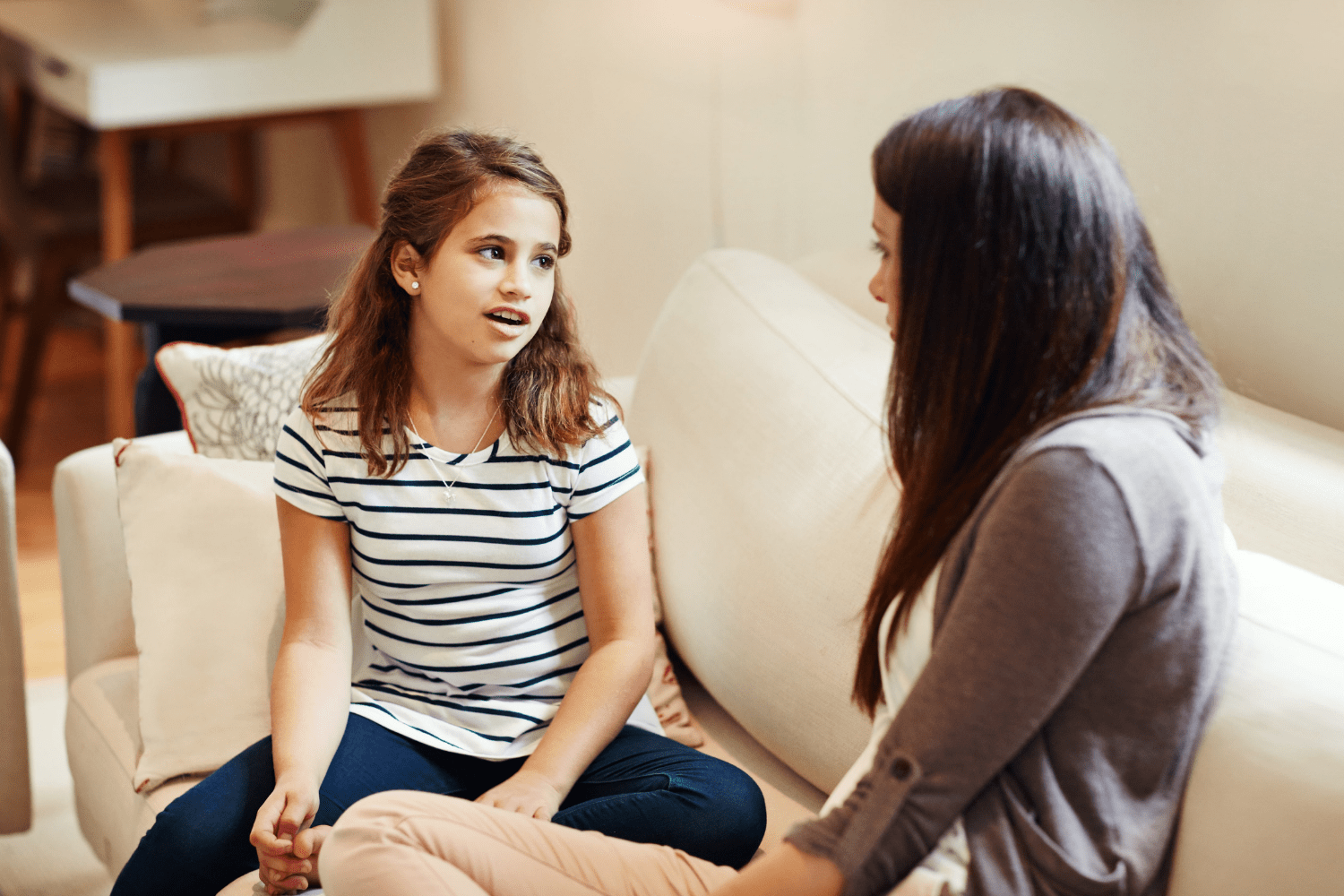Let’s talk about… Puberty

Puberty can be a confusing time for children as their bodies change.
Puberty usually starts between the ages of 8 and 13 in girls. In boys, it tends to start a little later between the ages of 9 and 14. Each child is different and will go through it in their own time. If you are concerned that your child has started puberty early or has not yet started, book an appointment with their GP as there can sometimes be an underlying cause. The NHS website has further information about early and delayed puberty.
Puberty is the time in your child’s life where their body grows the fastest. It begins when their brain releases hormones that tell their body it’s time to change. This happens gradually over a period of time, so it may not be noticeable straight away.
What to look out for
Some of the changes you may notice include:
- The onset of periods and development of breast tissue in girls.
- Testicular and penis enlargement for boys.
- Deepening of the voice for boys.
- Growing taller. This may happen slowly and steadily over time, or in growth spurts.
- Growing hair in different places of their bodies.
- Sweating more. This might mean they need to wash more frequently and start using deodorant.
- Spots start to appear. There are lots of products that can help manage greasy skin. If it’s more serious, you may find it beneficial to make an appointment for your child to see your GP who may prescribe different treatments.
- Greasier hair. Encouraging your child to wash their hair more frequently might help to manage this.
- Changes in their emotions and feelings of attraction to others.
- Mood changes. This is normal during puberty. However, if you have concerns or worries about your child’s mood, it may be beneficial to speak to someone about this.

